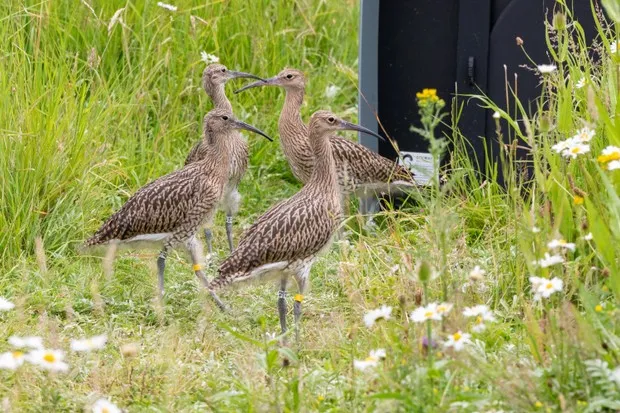Recently dubbed the ‘panda of UK conservation’ by ministers, the curlew is classed as a priority species in the UK, where it faces an uncertain future. Here, their population has seen an overall decline of 42 per cent between 1995 and 2008.
Understanding the fragile state of Britain’s curlew population, experts at Wildfowl and Wetlands Trust (WWT) decided to intervene, taking a hands-on approach.
The charity rescued over 50 curlew eggs from nests on military airbases in Norfolk, where they would have been destroyed under licence to protect air safety. The chicks were raised at Slimbridge Wetlands Centre, before being released onto reserves in Gloucestershire when they were old enough to fly.
The ‘headstarting’ (raising the birds artificially before releasing them into the wild) trial aims to increase population numbers in lowland England, eventually seeing the return of Europe’s largest wading bird to the Severn Vale, where it is hoped they will join wild populations and increase the number of breeding pairs.

Curlews have seen a sharp decline in the UK due to long-term changes in countryside management, where — in addition to predation — eggs and chicks can be destroyed by farm equipment.
Changes in farming practices can help curlew numbers to recover, as Mike Smart, Project Officer at WWT, explains:
“By working with farmers to delay hay cutting, putting up electric fences to keep out predators like foxes and badgers and introducing headstarted chicks, maybe we can conserve curlews here and help curlews in other lowland places, like the Thames and the New Forest.”
WWT has used the headstarting technique to boost black-tailed godwit and common crane numbers in the UK, as well as the spoon-billed sandpiper in Russia. This year, they are also supporting the work of Curlew Country in Shropshire, who first headstarted curlew in 2017.